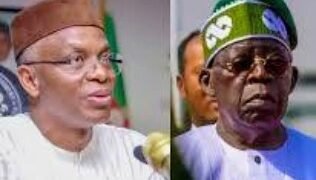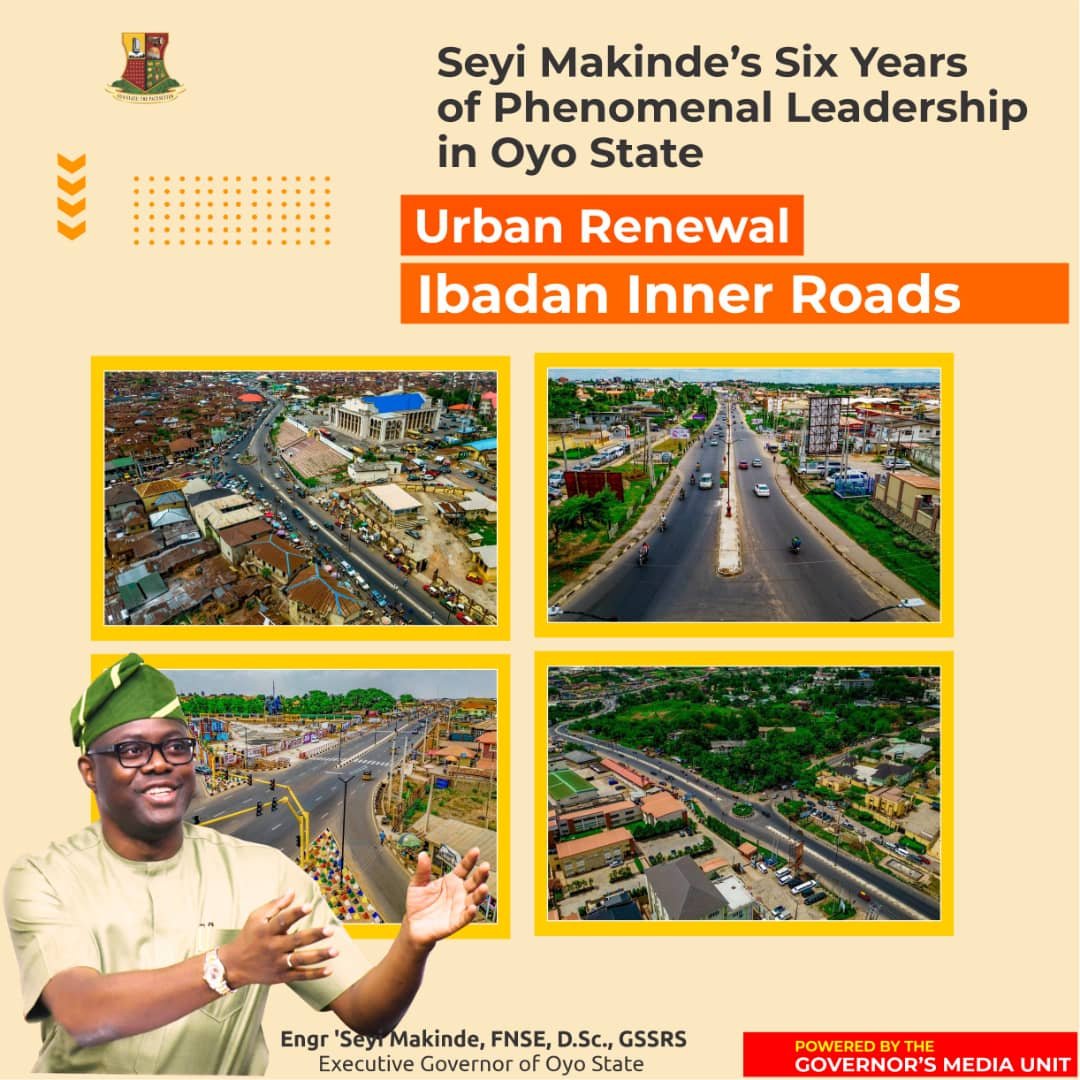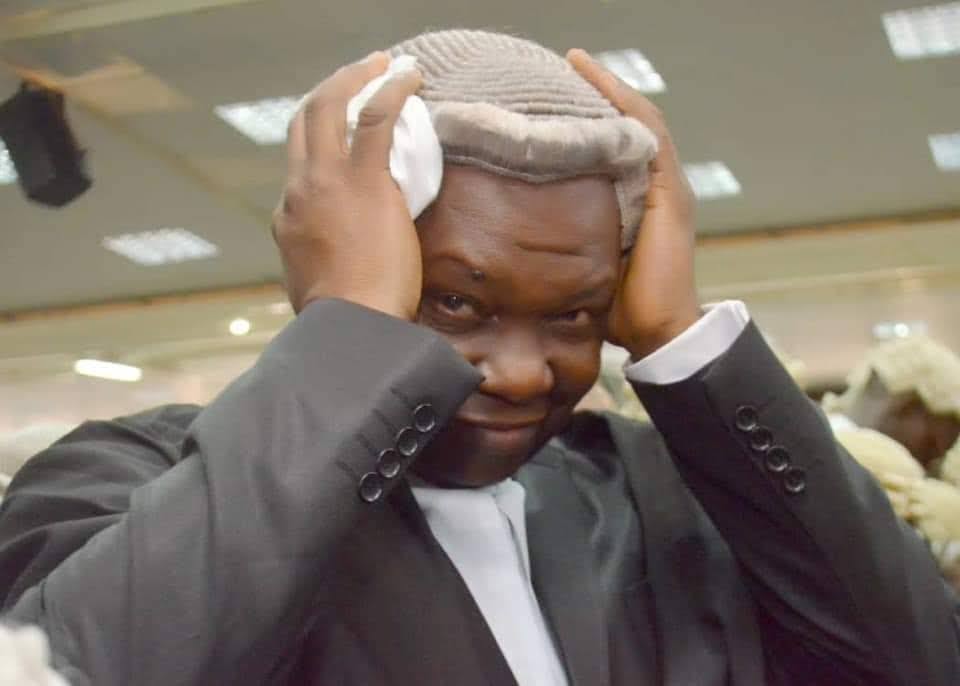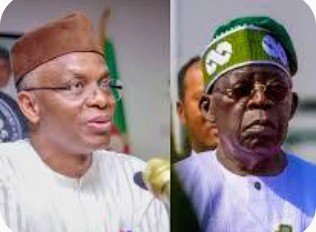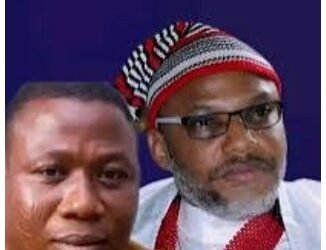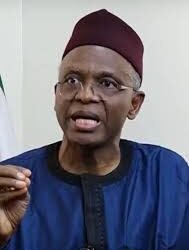By Festus Adedayo
A photograph forcefully elbowed itself into the media space during the week that just ended. It was that of President Muhammadu Buhari looking heavenwards, his two hands spread in total supplication to God, his countenance sober. He had arrived the Islamic holy city of Makkah on Thursday to perform the Umrah (lesser Hajj). Makkah, which houses the Mosque of the Holy Prophet Muhammed, is regarded in Islam as the second holiest mosque in the world. According to the president’s Media Man Friday, Garba Shehu, Buhari reportedly spent quality time embroiled in the rituals of fervently praying to God for “return of peace and security all over Nigeria,” as well as immersing himself in in-depth recitation of the Holy Qur’an.
In Buhari’s Nigeria of the last six years, crimson has been the colour of the sky. When the world looks towards Nigeria, it sees a country shawled in a towel of blood and hopelessness. Highly respected London-based magazine, Economist in a leader entitled, Insurgency, Secessionism and Banditry Threaten Nigeria, put the global view of Nigeria aptly but grisly scary, thus: “Jihadism, organised crime and political violence have grown so intense and widespread that most of the country is sliding towards ungovernability.” According to it, “in the first nine months of 2021, almost 8,000 people were directly killed in various conflicts,” and “hundreds of thousands more have perished because of hunger and disease, caused by fighting (with) more than 2 million (people fleeing) their homes.”
But, not to worry, President Buhari has prayed in Makkah. He swims in an ocean of hope, even when he is surrounded by mountainous seashells of hopelessness. A few days before fleeing to the protective covering of Makkah, he had arrived Kaduna for the Passing Out Parade of Cadets of 68 Regular Course, (Army, Navy and Air Force). Acknowledging that “our beloved nation Nigeria is facing many security challenges at this period,” and that Nigeria “continue(s) to face security threats and violent crimes such as insurgency, banditry, kidnapping and politically motivated killings which threaten our national integration” Buhari however “assured” that the Federal Government would do everything within the purview of the law to ensure the protection of Nigerians from the onslaught of criminals.
Hardly had the president finished giving this opaque “assurance” than gunmen invaded a weekly market in Goronyo, Sokoto State. They operated continuously between Sunday and Monday. At the end of their bloody strike, the terrorists killed at least 43 people, with scores sustaining injuries. In terms of “assurances,” the Buhari administration is not in short supply of this barren cliche. Add this to its off-the-cuff, peremptorily issued obsequies to those murdered by gunmen, no government in the history of Nigeria possesses Buhari’s huge arsenal of empty rhetoric. However, the reality on ground runs contra to its vague narrative.
Insecurity has heightened frighteningly in Nigeria in the past six years. Gunmen have field day across northwestern, northeastern and even southeastern states of Nigeria. Bandits terrorize them without let, kidnapping children with many of them disappearing for months, raping women and making life dreary for Nigerians. There is hardly any week that a space in the Nigerian geographical border is not soaked in blood. Pursuing this further, Economist said that, “across wide swathes of Nigeria, a collapse in security and state authority has allowed criminal gangs to run wild. In the first nine months of this year, some 2,200 people were kidnapped for ransom, more than double the roughly 1,000 abducted in 2020. Perhaps a million children are missing school for fear that they will be snatched.” Guns and gunmen have so much become recurring decimals that it is said that in Nigeria, it is rarer to see gari in the market than guns.
In the spate of attacks, Nigerians are killed with abandon, kidnapped in hundreds, most of them for ransom. The situation got so dire that, in conjunction with communication outfits, some state governments in the northern parts of the country have had to abridge the fundamental rights of their people while tackling the menace. They did this by imposing communications blackouts on their territories and upping military operations to forestall strikes of armed gangs.
On October 19 in Njaba, a community in Imo State, unknown gunmen suddenly opened fire and killed some traditional rulers. A couple of days ago, four policemen were said to have been killed by gunmen in Anambra State. Bandits kidnap young and old in Minna, Niger State as off-handedly as wall geckos peck insects for dinner. The saddening aspect of all these is that no one will be arrested; none will be prosecuted. If you are unlucky to fall prey to the barrenness of ability and capability of a government that Economist called “inept and heavy-handed,” you will become one of the statistics of its impotent “assurances.”
As government was celebrating its impacts in the transportation sector due to some railway routes that have received life and become operational aftermath an injection of billions of Naira into them, terrorists blew up the Abuja/Kaduna rail, a terror-laden operation that took place overnight. A train was said to have been attacked with explosives by the bandits, twice within the space of 12 hours. Media reports said the windshield of the train was shattered and the impact of the blast blew off a portion of the rail track. This prompted the Nigerian Railway Corporation (NRC) to temporarily suspend its service on the Abuja-Kaduna rail line.
Swallowed by these challenges and advertised incompetence, the Buhari-led government attempted to drown the hoopla in an Imelda Marcos-like din. Imelda Romualdez Marcos was a Filipina politician-turned convicted criminal, who served as Philippines’ First Lady for 21 years, during which she and her husband, Ferdinand, were alleged to have stolen billions of Philippines’ money. Imelda personally amassed personal fortune of between US$5 billion to US$10 billion as at the time Ferdinand was deposed in 1986. So, Diezani Alison-Madueke was alleged too to have stolen $2.5 billion belonging to the Nigerian government while she served as minister.
The fugitive former petroleum minister’s assets were advertised for forfeiture last week, among which were personal effects like bras and waist trainers, including properties like 125 wedding gowns, 13 small gowns, 41 waist trainers, 73 hard flowers, 11 suits, 11 invisible bras, 73 veils, 30 braziers, two standing fans, 17 magic skirts, six blankets, one table blanket and 64 pairs of shoes. Imelda was reputed to have amassed 3,000 pairs of shoes and lived lavish lifestyle. As late Odolaye Aremu the singer counsels, no one should mock whom the rain that hasn’t yet subsided batters as only when the rain ends its pitter-patter will we find out how many have been drenched. We surely will see Imeldas in skirts, agbada and babanriga post-2023.
The seeming barren success of military operations against these insurgents and bandits, among others, must have provoked the Economist to further lament what it saw as the sissy disposition of the Nigerian Army which it said was only “mighty on paper” with “many of its soldiers (are} “ghosts” who exist only on the payroll.” For a Nigerian Army that scooped global garlands in decades for its interventions in UN, ECOMOG and multiple regional operations, this was an unkind and calamitous blow of Hiroshima and Nagazaki proportion.
It will appear as though Nigeria had begun to collapse under the huge weight of insurgency, banditry and secessionist bids of her component groups. These are manifest outcome of the failure of the Nigerian Army and other security agencies to ruthlessly attack the menace of insecurity.
The question on the lips of the world is, how come that, the more the armaments of war get more sophisticated – the Tucano fighter jets and unheard-of military equipment – the more effeminate and ineffective the Nigerian Army becomes? The Economist has a frightening answer. It is that, “much of (the purchased fighting) equipment is stolen and sold to insurgents.”
Like soldiers in post-civil war Nigeria under Yakubu Gowon whose “big fat stomachs” – apologies to Fela Anikulapo Kuti – became the advertisement of their bloody heists in the war, Nigerian soldiers have become soldiers of fortune, feeding fat on Nigeria’s insecurity misfortune, almost bursting at their seams from the illicit blood of the murdered that fills up their fat tummies. Rather than attack the specifics of this claim, a riposte from the Nigerian Army’s Director, Army Public Relations, Brig Gen Onyema Nwachukwu, attributed the Economist’s leader to an attempt to “denigrate, demonize and destabilize the Nigerian government.”
The spate of insecurity in the land and the beating of the chest of the president have no mutual coherence. But to Saudi Arabia, the President headed, to pray for peace and security in Nigeria. Apart from crude oil and Islam that tie Nigeria to this House of Saud, Saudi Arabia spends sleepless nights bothering about threats of an external aggression of her neighbours as well as internal revolt. Like Nigeria which is so big that, of five black in the world, one is a Nigerian, Saudi Arabia spans a vast majority of the Arabian Peninsula and is the largest country in the Middle East, with an expanse of land, making it the second-largest country in the Arab world. While it is bordered by both Jordan and Iraq in the north, Kuwait in the northeast, it is constantly threatened by her neighbours – Quatar, Bahrain and the UAE, Oman in the southeast and Yemen in the north. These threats make Saudi Arabia to acquire one of the most sophisticated armaments in the world. Its leaders could have spent 24 hours a day in the Makkah mosque instead.
While it has no apologies for its very poor human rights record, since petroleum was discovered on its soil on March 3, 1938, the House of Saud’s monarchical elite has morphed the country into becoming the world’s second largest oil producer, as well as the world’s largest oil exporter. Today, its earth embowels the second largest oil reserves and sixth largest gas reserves in the world. However, unlike Nigeria, the kingdom is ranked by the World Bank as a high-income economy and its Human Development Index very high, also ranking as the only Arab country in the world to be named one of the G20 major economies.
Like Nigeria in the hands of successive governments, Saudi Arabia, in the hands of the House of Saud, is assailed by growing and emerging insecurity on all fronts – land, air and sea, chief among which is threat from Iran. There has been upsurge in kinetic and cyber threats to its strategic oil and gas assets as well. The kingdom also keeps its two eyes wide open to secure its 4,415 kilometers borders and 2,640 kilometer coastline to curtail threats from al-Qaeda. While it boasts of a Makkah perceived as one of the holiest cities in the world and is unapologetic that it runs a conservative theocracy with the Quran as its constitution, Salman bin Abdulaziz Al Saud, the king of Saudi Arabia and the 25th son of King Abdulaziz, as well as his son, Crown Prince Mohammed bin Salman, the de facto ruler of the House of Saud, work before praying and don’t shovel their problem into the hands of God.
Guided by the precepts of Islam on justice, they didn’t get to the peace on their land by merely stomping and desecrating the hallowed sacred land of justice. But President Buhari believes that prayer in Makkah would fight insurgency, curtail the war hunger is fighting, win the separatist war in Nigeria as well as prop the Naira, which is fast becoming one of the weakest currencies in the world, on its feet again.
Three factors stoke the current instability in Nigeria: a hitherto troubled but now comatose economy; a hydra-headed regime of injustice that has spread widely like the cells of cancer and, borrowing the word of the Economist, a bumbling government. Government not only has no answer to the cracks of instability across Nigeria, it grandstands in governmental ignorance. A hugely poor population, added to a stagnating hopelessness of what tomorrow portends for the people, has exacerbated the curve of the Nigerian civil conflicts. A whole region – the Southeast – is wrapped in a miasma of violence which neither prayer, nor governmental arrogance can resolve.
Only a humble Nigerian leadership that is just and has fairness as its watchword can unlock the key of the looming war and senseless killings across Nigeria. A government that it takes an eternity to declare those who bring down military fighter jets as terrorists but is quick to declare those who set government institutions on fire cannot be a fair shepherd to take Nigeria to the land of peace. As if Nigerians are fools, Minister of Defence, Bashir Magashi, last week said that “due process” was responsible for the delay in the declaration of bandits as terrorists. “When the procedure is followed, they will be classified as terrorists,” he had said.
When a government carries such a heavy burden of dirty compromises; when, rather than delink its ignorance and accept its ineptitude, it runs to God for a solution that He has deposited in the brains of man from creation, we can as well close shop, hopelessly throw our hands in the air, and head home.
The Ladigbolu and Asenuga-Olubanjo model
Two books engaged my attention last week. Incidentally written by women whose passion for the written word and unquantifiable bother for the regressing values in the Nigerian society are nonpareil, the books synchronize with my belief that, to rescue Nigeria from her current morass, each Nigerian must go to their homes and families and reconstruct the Nigeria of their dream there. Don’t Mess With Their Flowers and Akin and the Fake Doctor, the latter published by renowned University Press, products of the hands of Bukoladeremi Ladigbolu and Modupe Asenuga-Olubanjo, are attempts to locate the dying values of a Nigeria in the 21st century.
While Ladigbolu, in a narrative manner, frontally dissects and confronts the pandemic of rape in Nigeria, Asenuga-Olubanjo teaches the teenager targets of her book that no single individual is too young to make impact in society. Though the rape subject that Ladigbolu dimensions is not a new phenomenon, society is becoming alarmed that if it is not addressed, rape may emerge as Nigeria’s most damming social undoing. Treating such issues as what rape is, its types, facts behind it, why people rape, how to avoid it and experiential encounters with rape, among others, the book is no doubt a therapy to the menace and an explainer of why rape has become this bothersome.
Asenuga-Olubanjo however fictionalizes her bother about the ills that plague society. In five chapters, she treats the incidence of fake drugs, the need for everyone, no matter their age, to be alert to the danger of fakery and how collectively, we can save our society.
In and out of the inks of their books, both women are amazons who are making impacts with their special biases for the youth of tomorrow. Ladigbolu, a certified marriage and relationship coach, spares time to fling verbal cudgel on social deviances like child molestation and relationship abnormalities on the social media. Asenuga-Olubanjo, a journalist turned public relations expert with one of Nigeria’s telecommunications companies, on her own, is a teacher of youths, impacting society with the model of values of traditional African Yoruba society.
Dr Adedayo is a lawyer, columnist and social critic.


